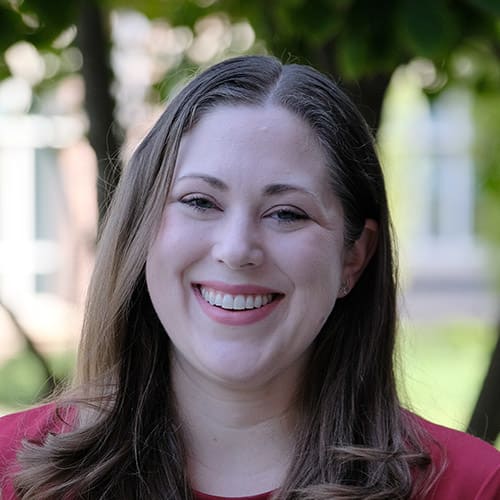
ALTCS Benefits: How to Pay for Assisted Living

When your loved one needs help with daily activities, it can be a challenge to find the right care. You want to find somewhere that they love and that they can afford. Paying for that care can seem like a heavy weight to shoulder. For seniors and adults with disabilities in Arizona, the Arizona Long Term Care System (ALTCS) program can cover portions of assisted living costs.
Can you afford assisted living?
Let our free assessment guide you to the best senior living options, tailored to your budget.
Key Takeaways
- ALTCS is an Arizona-specific health insurance program for seniors who need long-term care. You must be an Arizona resident to be eligible.
- Strict eligibility requirements limit membership in ALTCS. Financial and nonfinancial conditions are considered in the application process.
- ATLCS may only cover a portion of assisted living costs. Services provided through Home and Community Based Services may be delivered in an assisted living setting.
- The Arizona Estate Recovery Program may apply to ALTCS members. Money can potentially be collected from members’ estates or real property to cover the cost of care provided by ALTCS.
When your loved one needs help with daily activities, it can be a challenge to find the right care. You want to find somewhere that they love and that they can afford. Paying for that care can seem like a heavy weight to shoulder. For seniors and adults with disabilities in Arizona, the Arizona Long Term Care System (ALTCS) program can cover portions of assisted living costs.
What is ALTCS?
ALTCS (pronounced ALL-tex) stands for the Arizona Long Term Care System, which serves as health insurance for Arizona seniors or disabled adults in need of services provided in nursing homes. It’s part of Arizona’s Medicaid agency, known as the Arizona Health Care Cost Containment System (AHCCCS).[01]
Unlike the U.S. government’s national Medicare program, which is health insurance for older Americans that generally doesn’t cover assisted living costs, ALTCS was designed specifically to help seniors pay for long-term care services.

Can you afford assisted living?
Let our free assessment guide you to the best senior living options, tailored to your budget.
Who is eligible for ALTCS?
ALTCS generally serves Arizona’s seniors and adults with disabilities who meet strict financial and nonfinancial eligibility guidelines.
Financial requirements
To enroll in ATLCS, you must meet the financial guidelines for this Arizona-specific program. The current ALTCS gross monthly income limit is $2,523. This amount is for single individuals only.[01]
Under current regulations, single individuals who apply for ALTCS cannot have more than $2,000 in countable resources, which include the following:
- Financial accounts
- Property that you don’t live in
- More than one vehicle
- Cash
- Stocks, bonds, and certificates of deposit [01]
However, the following are not considered countable resources:
- Property that you live in (unless this home has been placed in a trust)
- One vehicle for your use
- Burial plots or burial plans, including $1,500 designated for burial
- Your household and personal belongings [01]
Different rules may apply to married couples. For individual applicants who are legally married to a spouse living at home or any place else except a medical facility, that spouse is referred to as a “community spouse” in the ALTCS program. The community spouse may be able to hold onto additional assets beyond the $2,000 countable resources limit.[02]
Nonfinancial requirements
As ALTCS is an Arizona-specific program, eligible applicants must be Arizona residents as well as U.S. citizens or qualified immigrants. For the ALTCS application, you must have a Social Security number, but there may be exceptions for people currently in the process of applying for a Social Security number.[01]
You’ll also need to prove that you’ve applied for and been denied all cash benefits that you may be eligible for, including pensions and VA benefits.
Another requirement is that you must have an ALTCS-approved living arrangement. Your current home is one option, as is an AHCCCS-certified nursing home or an assisted living community approved for ALTCS. If you’re residing in a senior living community that is not AHCCCS-certified, you may not be eligible. To decide eligibility, AHCCCS also has to determine that ALTCS applicants truly need the level of care provided in nursing homes.[01]
What long-term care services does ALTCS cover?
During your enrollment process, ATLCS typically enrolls you with a program contractor, such as Banner University Family Care, The Department of Economic Security, or an American Indian contractor. Companies, such as Banner University Family Care, create a network of contracted service providers to provide services to their members. The program contractor usually assigns a case manager to help with ALTCS services and develop a service plan in connection with a person’s primary care physician. Families may be consulted as part of the service plan creation.[03]
Coverage depends upon each individual situation, but ALTCS may cover the following:
- Medical care
- Hospice care
- Mental health care
- Home and Community Based Services (HCBS), which combines outpatient and in-home care services and may be delivered at a person’s residence, such as an assisted living community approved for ALTCS
- Institutionalized care within a nursing facility [01]

Expert advice for affordable assisted living
Tell us your care needs to receive options tailored to your budget.
How is the Arizona Estate Recovery Program involved with ALTCS?
The Arizona Estate Recovery Program focuses on recovering payments that were made for ALTCS members under a specific set of circumstances. Typically, this effort applies to people 55+ who are enrolled in ALTCS and receive Home and Community Based Services, such as in an assisted living facility.[04]
Through this program, AHCCCS may be able to file claims and liens to members’ estates or property. This can usually be done up to the payment amounts made by ALTCS for an individual.[04]
For example, if you live in assisted living and your spouse remains in your home, when your spouse passes away the Arizona Estate Recovery Program may be able to collect money from that property in the manner described above.
ALTCS is upfront about this program. As part of the enrollment process, individuals are typically required to sign a document acknowledging that AHCCCS may collect money from their estates or real property to cover the cost of care.
Making an informed decision
You, your loved one, and your family should take the Arizona Estate Recovery Program into consideration prior to enrolling in ALTCS. It can be helpful to consult with an Arizona elder law attorney or Arizona financial advisor. For some individuals, it may be more beneficial to pay for senior living through private pay options. It heavily depends upon each individual’s unique life situation.
Anyone applying for ALTCS can choose to withdraw their application prior to enrollment. However, once a person is enrolled, AHCCCS may have a legitimate claim upon their estate for services provided.
Does it matter where I live in Arizona when applying for ALTCS?
Yes — ALTCS currently has three main regions for ALTCS health plans. Each region has different health plans and program contractors. Here are the three regions plus the counties they include:
- South (La Paz, Yuma, Pima, Santa Cruz, Cochise, Graham, Greenlee)
- Central (Maricopa, Pinal, Gila)
- North (Mohave, Yavapai, Coconino, Navajo, Apache)
The ALTCS Health Plans Map indicates which health care plans are currently available for each region.
How do I apply for ALTCS?
To apply for ALTCS for yourself, your spouse, or a parent, you’ll need to complete the AHCCCS Request for Application for Arizona Long Term Care System form. It’s important to fill out the form completely and correctly.
Once you’ve prepared the form, there are a few different ways to submit it:
- Fax it to 888-507-3313.
- Mail it to ATLCS at 801 E Jefferson St, MD 3900, Phoenix, Arizona 85034.
- Email it to altcsregistration@azahcccs.gov.
- Deliver a paper copy to one of the seven ALTCS offices.
You may also submit a request for application via the phone by calling 888-621-6880. This same phone number can be used to contact ALTCS for help with the application process.
As part of the application process, the person applying for ALTCS will most likely be required to complete an interview. You or your loved one will likely be asked to provide specific financial and medical documents to prove that the person applying meets current eligibility requirements.
How to find ALTCS-approved assisted living facilities
If you or your loved one is interested in a specific community, check to see if it’s an AHCCCS-certified assisted living facility approved for ALTCS. The Senior Living Advisors at A Place for Mom can also help you locate assisted living communities that may be right for your situation, all at no cost to you.
Arizona Health Care Cost Containment System. (2021, December). Filing an application for the Arizona Long Term Care System (ALTCS).
Arizona Health Care Cost Containment System. (2022, June). ALTCS policies on community spouse.
Arizona Health Care Cost Containment System. Medical Assistance Eligibility Policy Manual.
Arizona Health Care Cost Containment System. (2022, May). State of Arizona: Medicaid estate recovery program.
Assisted living in all states
The information contained on this page is for informational purposes only and is not intended to constitute medical, legal or financial advice or create a professional relationship between A Place for Mom and the reader. Always seek the advice of your health care provider, attorney or financial advisor with respect to any particular matter, and do not act or refrain from acting on the basis of anything you have read on this site. Links to third-party websites are only for the convenience of the reader; A Place for Mom does not endorse the contents of the third-party sites.
Find assisted living that fits your needs and budget
Find assisted living that fits your needs and budget